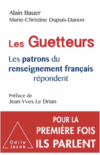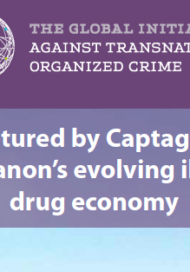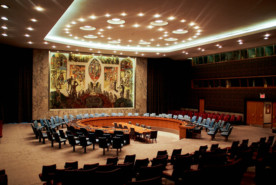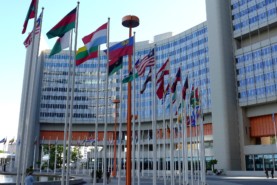Posted on 12 Jun 2018
A new book by Global Initiative network member Alain Bauer sheds light on the French secret services ‘watchmen’ tasked with tackling the changing nature of terror on French soil.
For the first time, major figures from the French intelligence services tell the story of what has effectively been a revolution among the French secret services since the 1980s. Their collective testimonies, from counter-spying to counterterrorism, appear in Alain Bauer’s latest book, Les Guetteurs (‘the watchmen’), published in March 2018.
Alain Bauer is a criminology professor at the National Conservatory of Arts and Crafts, Paris, and a senior research fellow at the John Jay College of Criminal Justice, New York, and at the University of Law and Political Science of China. He has written over 50 publications on crime and security.
Looking back over the evolution of French security concerns at the national and international levels, his book sheds light on how the French intelligence service has reacted to current threats, most recently in the form of the terrorist attacks on French soil over the past couple of years.
This new reality has brought with it new counterterrorism strategies among French security circles, which have had to adapt to an Islamist-motivated threat that uses cyber technologies and networks to convey its messages and divide people through terror – what we label today as violent extremism or radicalization.
Bauer’s book analyzes this paradigm change, weighing up the often incompatible balance between security and freedom through eyewitness accounts of officials who were once at the helm of the French secret services. It sheds light on the role of the intelligence community as the state’s nervous system.
A key failing raised in the book is the lack of informed analysis and research among intelligence services in the country. There is no counterterrorism research centre in France – a capacity that is needed if the current security framework is to be fully effective.
The Global Initiative conducted a short interview with Alain Bauer about transnational organized crime and its nexus with terrorism.
GI: What are the biggest criminal threats the world is facing today? How should we respond?
The greatest risk the world is facing today, in my view, is the interconnection of crime and terrorism, and the capacity of organized crime to exert a major global financial influence. At the same time, we have often chosen to deny the threat of crime or have observed it through a rear-view perspective, refusing to accept that it evolves and mutates over time. One ought to approach this reality as the cornerstone of any analysis of how to best respond to organized crime.
GI: In your opinion, what is the impact of transnational organized crime on the security community in France?
France has never really been a hub for organized-crime or the mafia, and the presence of any organized-crime groups operating in the country has usually been fleeting. There have been several criminal groups that launched operations over short periods of time in France, including the brief episode of the Italo-Grenoblois mob, followed by the more aggressive encroachment of the Albanian mafia during the period of the Yugoslavian Civil War in the 1990s. So France may have seen diverse forms of organized crime, but the groups have tended to be weak structurally and in their implementation.
GI: Is the French intelligence community well equipped to fight against the threats that transnational organized crime poses today?
Yes, I think so. The Central Directorate of the Judicial Police has access to sound, first-hand information. Of course, terrorism has eclipsed to an extent the authorities’ interest in organized crime over the past few years, but the increasing hybridization between organized crime and terrorist threats that we see today provides, if anything, a new spur for the intelligence community to address organized-crime issues.




